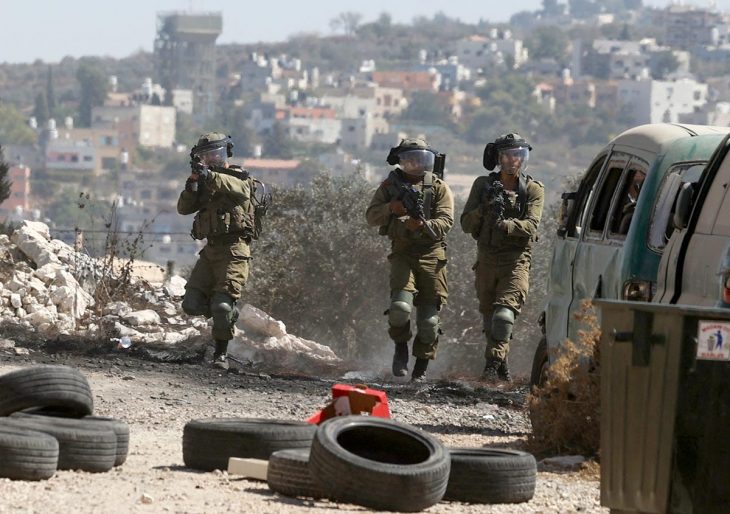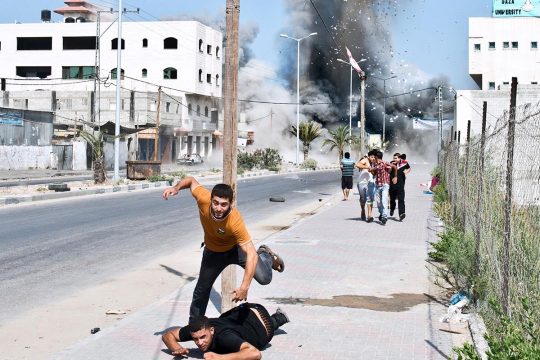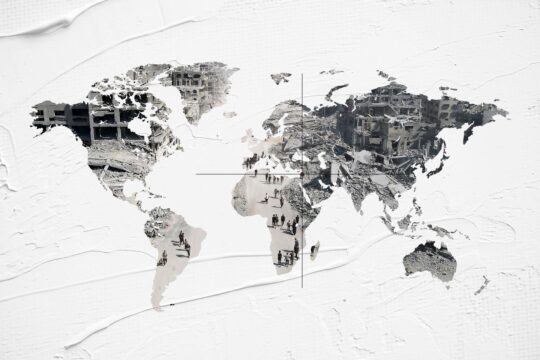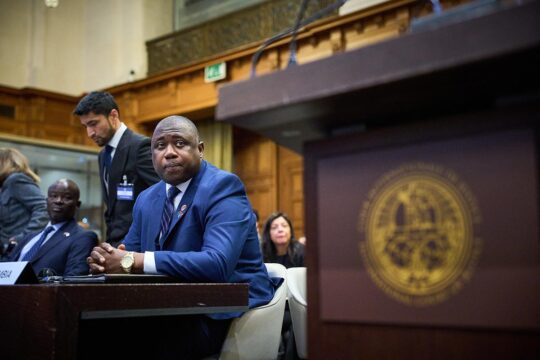JUSTICE INFO: Why did the commission of inquiry on human rights and international humanitarian law violations in Palestine and Israel recommend the request for this advisory opinion from the International Court of Justice (ICJ)?
NAVANETHEM PILLAY: Firstly, these are the tools of the United Nations and all those member states provided for that. They said if there's a dispute, the court intervenes and gives an advisory opinion and interprets international law, reminds states of their obligations. It's their court and they've never had an opportunity to look into the lawfulness of prolonged occupation. We have to follow the remedies that are available, and we needed a UN General Assembly resolution. It was done [recourse to the ICJ], as you know, in the case of Ukraine-Russia, and before that the Gambia’s case against Myanmar.
And what do you think it will achieve?
I think that such a long, drawn out dispute that has not been resolved and in our view has got worse and worse has to be dealt with by the court. Now they can rule either that it's unlawful or they can rule that it's lawful. They've also been asked, and this is very important, to determine what are the responsibilities, obligations of other states, because at this stage, some of the states are supporting this occupation. They are helping financially and morally. Now, what's the impact of a decision that the occupation is illegal? Can they continue giving support to an illegal operation? They may not give a decision that will be helpful to Palestine, I can't predict. But if they follow international law, we think there's a good case on why the prolonged occupation of almost 60 years was never envisaged under international law. It was always meant to be temporary.
Such ruling by the ICJ is not actually binding because it's an advisory opinion. And it may well take this court a year to actually come up with this. So won’t it be too late?
Well, it may take even more than a year because [the court] has a heavy load of cases. These are the limits within which the Commission of Inquiry that I chair could go to remind members of their own mechanisms for resolving matters. And if the ICJ gives serious attention to this, addresses international law, it must be taken seriously by member states. It's their court. True, the ICJ does not have the power to implement its decisions. It expects states to implement them. Generally, states do comply with the ICJ decision but there are instances where that has not been the case.
You mean Israel, for example? There was another advisory opinion on Israel from the ICJ back in 2004, which ruled that its separation Wall around Palestinian territory, including Jerusalem, was illegal and should be dismantled. Israel ignored it, so won’t it just do that again?
Yes, you're right, Israel completely ignored it. It has also ignored numerous U.N. Security Council and General Assembly resolutions, for instance, on settlements. This is what we documented in our first report. We looked at the massive number of recommendations from UN bodies, treaty bodies, special rapporteurs, and all those recommendations have been ignored. Israel has continued on its path and its policies.
And as you say, with the support of other member states, notably one of the most powerful ones, the United States.
Yes.
Your report says possible war crimes and crimes against humanity have been committed in the context of the Israeli occupation of Palestine, and you are also urging the International Criminal Court (ICC) to prioritize its investigations regarding the situation in Palestine. These were officially opened in March 2021 but they don’t seem to be making much progress. Why do you think the ICC is dragging its feet?
It’s in the hands of the Prosecutor. All I am told is that they’re investigating. But our Commission is not time bound, the mandate is wide and includes cooperation with international justice institutions. We are in touch with the ICC.
Are you sharing evidence with the ICC?
Not yet, but we will.
Has the Commission had any cooperation from Israel?
No. Israel has not given permission for any UN commission or Special Rapporteur to enter Israel. They don’t even tell us why. But we are fairly successful in talking to Palestinians and Israelis in Jordan and Geneva, for example.
Your report mentions a 1971 ICJ advisory opinion that said South Africa’s occupation of Namibia at the time was illegal, which helped end that occupation. Do you see similarities with the current situation in Palestine?
You know, in South Africa we had no legal remedies at the time, so we looked to the UN. The US under Ronald Reagan and the UK under Margaret Thatcher used their veto to stop sanctions against South Africa. I think that this ICJ ruling is a good example of how a legal opinion from that court can help. Why does Palestine have to struggle so hard? It has a lot of political support but not of powerful states. So we want to use the law, as was done with Namibia.
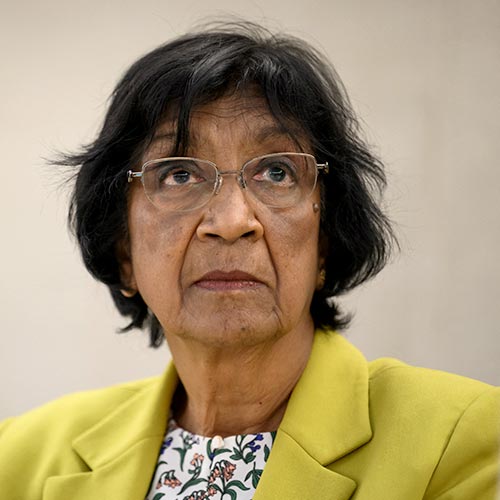
© Fabrice Coffrini / AFP
NAVANETHEM PILLAY
South African judge Navanethem Pillay, 81, is chair of the United Nations Independent International Commission of Inquiry on the Occupied Palestinian Territory, including East Jerusalem, and in Israel, set up by the UN Human Rights Council in May 2021. Prior to that, she has been a judge and president of the International Criminal Tribunal for Rwanda, a judge at the International Criminal Court, and UN High Commissioner for Human Rights, among other positions.


